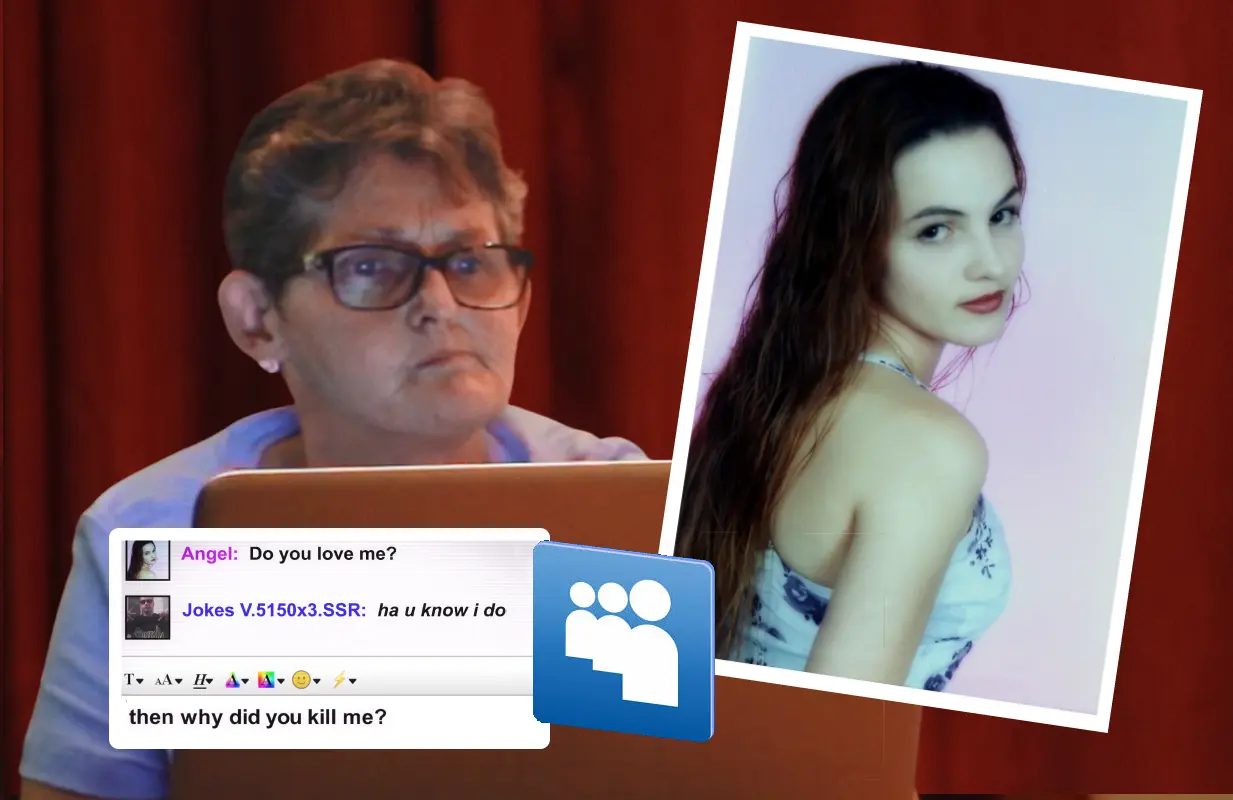Why Did You Kill Me? Is More Than Just a Catfish Story
-
 Belinda Lane (left) posed as her daughter Chrystal (right) on social media to find her killer. (Photos: Netflix)
Belinda Lane (left) posed as her daughter Chrystal (right) on social media to find her killer. (Photos: Netflix)The editor-in-chief of the daily newsletter Best Evidence, Sarah D. Bunting knows a thing or two about true crime. Her weekly column here on Primetimer is dedicated to all things true crime TV.
Most of the single-sentence summaries of Why Did You Kill Me? mention catfishing — understandably, because that did occur. After Crystal Theobald was gunned down in her mother's car in 2006, her mother, Belinda Lane, set up not one but two MySpace accounts in an attempt to entrap the man or men she suspected of committing the murder. The film is evidently comfortable with the reference, although it's worth noting that the movie Catfish didn't come out until 2010, and the TV show two years after that.
Why Did You Kill Me? opens with a re-enactment of the MySpace-messenger conversation in which Belinda, via the "Angel" catfish account that bears Crystal's picture, invokes the documentary's title; the stripped-down presentation of the typed exchange is chillingly effective. Why Did You Kill Me? tells a straightforward story, but what may seem like narrative simplicity is actually a tight focus by director Fredrick Munk that allows the film to touch on a wide array of issues.
Why is Munk's first feature, and it shows at times, but the production's let's-make-a-movie feel also functions to give us a better sense of the interviewees as people, while refreshingly avoiding newsmag clichés like the bathetic shot of the grieving sibling staring into the horizon. Munk lets us feel Crystal's family's grief instead, by allowing then to express it in their own ways — and his access to the family and others involved in Crystal's case is excellent.
I don't know whether the decision to use a tabletop model-train-type set-up for most of the film's reenactments was for budgetary reasons or because Munk wanted to try something new, but whatever the motivation, the toy cars and doll figurines really work. In a handful of scenes, a hand is pushing a car around in the little "set," and it reinforces the idea of how everyone in the situation — from Crystal, to her family, to the 5150 gang members who set the event in motion — was at the mercy of larger forces, including poverty, addiction, racial inequities in the justice "system" and the vicious cycle incarceration inflicts on generations of families.
These larger forces are implied elsewhere in the film too, starting with the fact that Why is about the Theobalds in the first place. They aren't your typical victim's family or the classic crusaders so often seen in Dateline and PBS docs — they are imperfect, struggling people with broken furniture and prison tats; they don't call the police when trouble comes, instead they handle it themselves by catfishing local gang members to a "party" that's really a revenge trap. But they're still people, grieving, deserving of justice — and capable of compassion, even for the functionally orphaned gang member who ultimately pulled the trigger. Munk sometimes strains to create tension by withholding information until later in the doc, but at least we're seeing the Theobalds and the 5150 guys, and getting their perspectives. One segment featuring a gang member/eyewitness in an elaborate but totally ineffective disguise feels at first like a story cul de sac, but it ends up serving as a reminder that everyone who came together at that literal intersection the night Crystal was shot got left behind or screwed over somehow.
Why Did You Kill Me? isn't exactly elegant, but it's paced well and it features affecting insights from its participants. Yes, it's a catfishing story, and Why is good at explicating that part of it too, but with so many other societal and systemic stories at play, it can be hard for a documentary to concentrate and resist sprawling. Munk concentrates, and the results are compelling.
Why Did You Kill Me? drops on Netflix April 14th.
Sarah D. Bunting co-founded Television Without Pity, and her work has appeared in Glamour and New York, and on MSNBC, NPR's Monkey See blog, MLB.com, and Yahoo!. Find her at her true-crime newsletter, Best Evidence, and on TV podcasts Extra Hot Great and Again With This.
TOPICS: Why Did You Kill Me?, Netflix, Catfish, True Crime